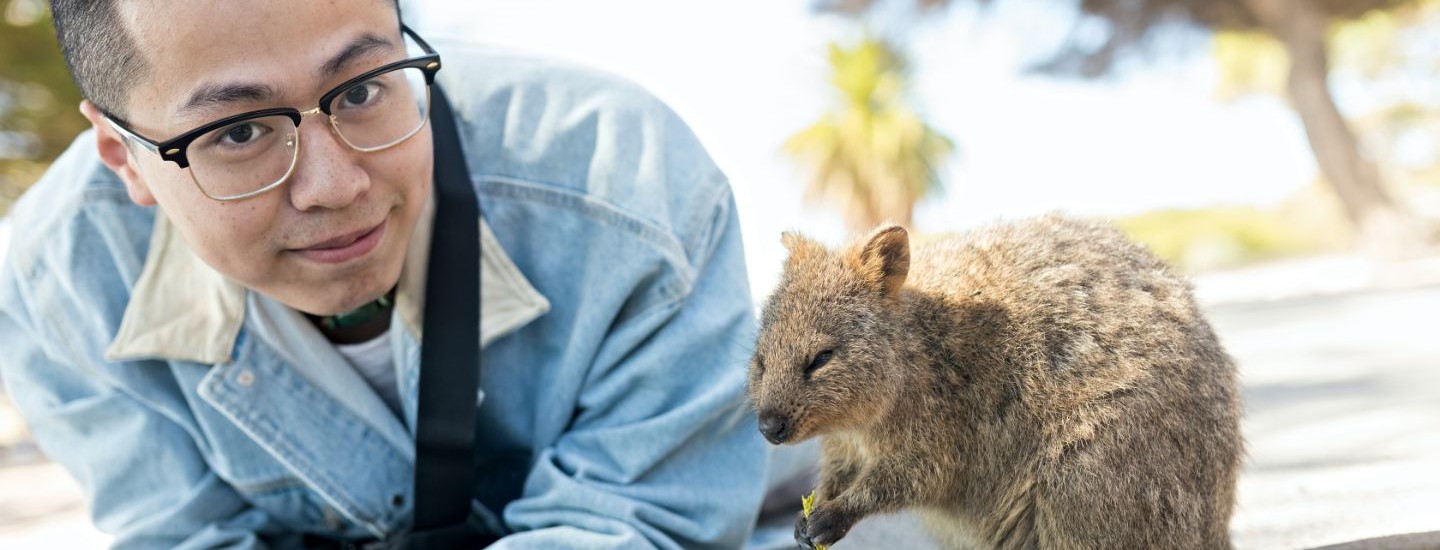Learn more about life in one of the world’s most liveable cities – and your new home – here.
- Home
- About
- Courses
- Future Students
- Current Students
- How to Apply

Learn more about life in one of the world’s most liveable cities – and your new home – here.
Australia has a very varied climate. Melbourne has been described as having four seasons in one day and its fickle weather can take some getting used to, although it can still be enjoyed all year round.
While Melbourne does have clear seasons, you can never be too prepared for sudden changes in temperature so it’s good to always carry an extra layer and an umbrella – especially in the colder months.
In summer it can get very hot and it’s easy to get sunburnt. It’s important you protect yourself by wearing high SPF sunscreen and wearing sun-smart clothing including a hat and sunscreen.
Australia is a very multicultural society. Being such a culturally diverse nation, there is really no such thing as a typical Australian. Still, you may experience a number of social habits and customs that are different to your home country.
Equality and fairness is very important to Australians. Our culture is known for its lack of class distinctions. Equal opportunity and a fair go for everyone regardless of gender, religion, nationality, disability or sexual preference is considered a fundamental right.
Australians are used to being amongst many different cultures, so never be afraid to ask questions. One of the best ways to immerse yourself in Australian customs and culture is to get out, meet new people and mix with as many locals as you can find.
The Australian currency is called the Australian dollar (AUD). Australian coins come in the following denominations:
Australian bank notes come in the following denominations:
Most ATMs (cash machines) dispense $20 and $50 notes. Some shops and other outlets will not accept $100 notes, so it’s best to carry smaller notes. Debit and credit cards are widely accepted. Check with your back at home to see if you will be charged a fee to use your debit and/or credit card in Australia.
When purchasing items in Australia, it’s important to remember the goods and services tax (GST). GST is a broad-based tax of 10% on the supply of most goods, services and anything else consumed in Australia. Most prices shown include GST, but if you’re not sure, just ask.
We recommend having around $200AUD in cash when you arrive in Perth. Please refrain from carrying large sums of cash on your person for safety reasons.
NOTE: Curtin College does not accept cash payments for tuition or anything else larger than $200AUD.
The major banks in Perth include Commonwealth Bank (CAN), Bankwest, ANZ, Citibank, HSBC, and Westpac.
To open a bank account in Perth, you will need your passport, student ID (which you will receive after Orientation) or Letter of Offer and Letter of Acceptance, along with proof of your current address in Australia. Many banks offer special student rates so make sure to ask!
Money can be transferred from your home country to Australian bank accounts. Please be advised that banks can put holds on large international money transfers, sometimes up to three weeks. Make sure you ask your bank how long the transfer will take and be sure to keep copies of all your transaction records.
If you are paying your education fees by International Money Transfer, send a copy of your transaction receipt to fees@curtincollege.edu.au and again, keep a copy for your records.
Appliances in Australia use 220 volts and 60 Hz. You can buy adapters to fit the Australian power points for your existing electronic items.
If you are bringing a mobile phone from home, make sure that it’s unlocked and not restricted to your home network or country. You can then purchase an Australian SIM card to insert into your phone. SIM cards can be purchased at the airport or from a range of outlets including post offices, supermarket chains, petrol stations and mobile phone company stores.
Most mobile phone companies in Australia will allow you to purchase a pre-paid SIM card. Alternatively, you can sign up to a long-term contract and pay after each month of use. Make sure to give your family a call once you get here to know that you’ve arrived safely!